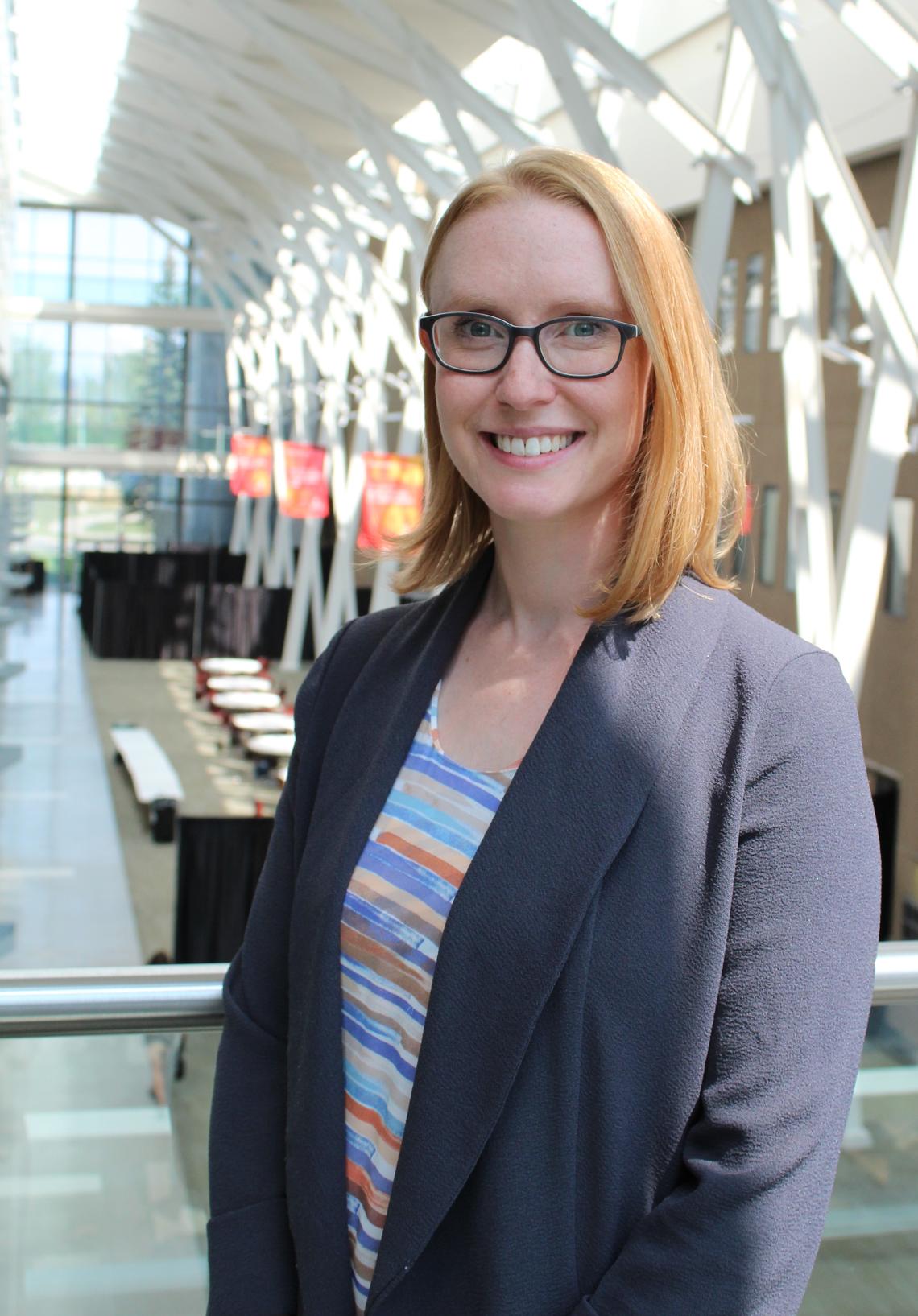Feb. 1, 2021
Young mom welcomes UCalgary trial of simple new way to prevent blood clots

Two years ago, Diane Anderson, 34, had just delivered her third baby. It was a normal pregnancy and delivery for the young mom, and she was getting back into a routine of parenting her three boys, ages four, two and newborn.
But a month postpartum, Anderson began to experience pain on the left side of her body and had difficulty raising her arms. She dismissed it, thinking it was simply muscle pain caused by carrying her newborn. But as the days passed, the pain grew, she began feeling nauseated and had chest pain.
When the pain became intolerable, Anderson visited the emergency room, where she learned she had a blood clot in her lungs that caused a blockage (pulmonary embolism). She was sent home with steroids and blood thinners to inject.
But soon she started feeling short of breath, a scary sensation for the runner. “I couldn’t even walk up the stairs to put my baby to bed because I felt like I couldn’t breathe,” says Anderson.
Road to recovery
She headed back to the emergency room where she learned her left lung had filled with fluid. They drained the lung and her road to recovery began.
“The difficulty in the recovery was that it was painful,” says Anderson. "Even months later, walking and taking a deep breath was painful. It was hard to go from being an active runner to having pain from something as simple as lying down.”
Although the condition is rare, women are at an increased risk of developing blood clots (thrombosis) after delivering a baby, especially in the six weeks following delivery. Blood clots can lead to pulmonary embolism, the leading cause of maternal mortality in the developed world.
Researchers have identified several risk factors for women developing blood clots postpartum, such as smoking, being overweight, bed rest during pregnancy, preeclampsia, and an unplanned cesarean section or postpartum hemorrhage. But they still don’t know how best to treat them.
Pilot study investigates a promising treatment
A Cumming School of Medicine (CSM) researcher at the Libin Cardiovascular Institute is trying to change that.
Dr. Leslie Skeith, MD, who specializes in thrombosis in women, is launching the Pilot PARTUM Trial, an international pilot study looking at the feasibility of using Aspirin (ASA) to prevent postpartum women from developing blood clots, compared to a placebo pill. If the pilot study is successful, this will pave the way to a much larger definitive trial around the world.
Currently, women at risk of developing clots may not receive any medication postpartum, or they may receive daily injections of anticoagulant medication, which can be quite inconvenient. However, ASA has been shown to be effective: as injections in preventing blood clots following major orthopedic surgery; safe with breastfeeding; more convenient and accessible than daily injectable blood thinners.
Skeith is excited about the study, entitled Postpartum Aspirin to Reduce Thromboembolism Undue Morbidity (PARTUM).
“This could be a simple, cost-effective way of preventing an uncommon, but serious problem,” says Skeith, adding Aspirin is not only economical, but is also far more convenient. “PARTUM could impact thousands around the world. It is patient-focused, pragmatic and simple.”
Young mom welcomes research project
Anderson, who had to inject blood thinners for six months following her episode, agrees.
“If I could have just taken an Aspirin to prevent all of this, I would have done that in a heartbeat,” says Anderson, noting she now she shares her story as a warning for women to listen to their body and take symptoms seriously.
The pilot trial opened at the Foothills Medical Centre in October 2020 and recruitment is currently underway. It is expanding to eight sites across five different countries, including Canada, France, the Netherlands, Ireland and Denmark.
Skeith says the trial is a collaboration between health-care professionals in several disciplines, including hematology, obstetrics, obstetric internal medicine and nursing, as well as patient representatives.

UCalgary researcher Leslie Skeith.
Skeith’s project is funded by the Canadian Institutes for Health Research and INVENT, an international thrombosis research network. For more information or to contact the research team, visit partumtrial.ca or email info@partumtrial.ca, or follow the trial on Twitter at @PARTUMTrial.
Dr. Leslie Skeith, MD, is a clinical assistant professor in the departments of Medicine, Community Health Sciences and Oncology at the Cumming School of Medicine. She is also a member of the CSM’s Libin Cardiovascular Institute, O’Brien Institute for Public Health and the Alberta Children’s Hospital Research Institute.






